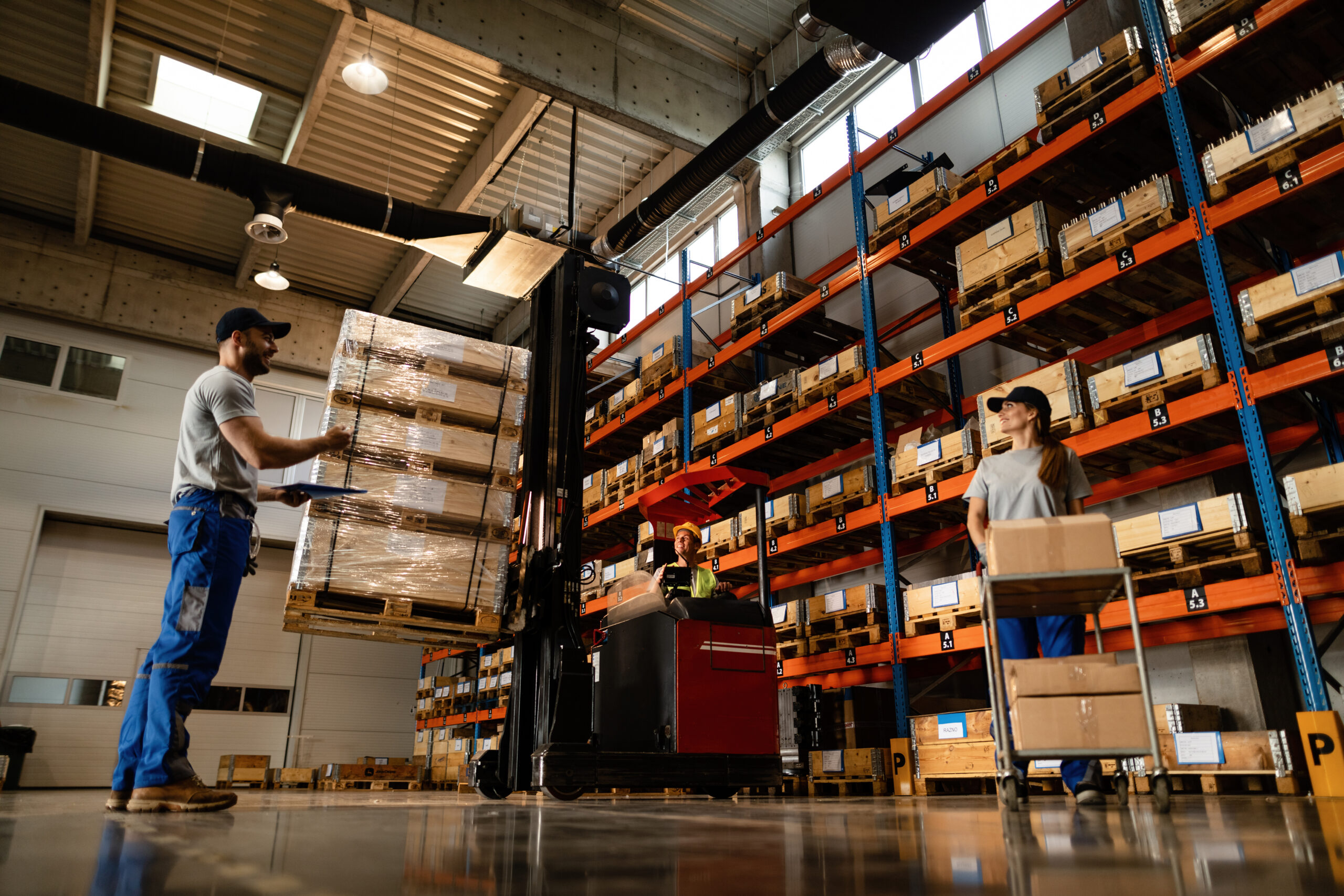The terms ‘wholesale’ and ‘retail’ are often heard in the business world, but understanding the differences between wholesale vs retail is crucial for anyone involved in buying, selling, or manufacturing products. This article explores the distinct characteristics of wholesale and retail, their business models, pricing strategies, and the benefits each offers. Whether you’re a budding entrepreneur, a wholesaler, a retailer, or a curious consumer, this guide will provide valuable insights into these two fundamental aspects of the supply chain.
What is Wholesale?
Wholesale refers to the process of buying goods in large quantities, typically from manufacturers or distributors, and selling them to retailers or other businesses. Wholesalers typically operate from warehouses and do not sell directly to the end consumer. This business model focuses on volume sales, offering products at a lower price due to the large quantities involved.
Understanding the Role of a Wholesaler
A wholesaler acts as an intermediary between manufacturers and retailers. They purchase goods in bulk, benefiting from lower prices, and then sell these goods to retailers, who in turn sell to the end consumer. Wholesalers may also provide retailers storage, product assortments, and logistical support.

The Difference Between Wholesale and Retail
The key difference between wholesale and retail lies in their target customers and the volume of goods sold. Wholesalers sell large quantities at lower prices to retailers or other businesses, while retailers sell smaller quantities at a higher price to consumers. This difference significantly impacts their pricing strategies, marketing efforts, and overall business operations.
Retail: Selling Directly to Consumers
Retail involves selling products directly to consumers. Retailers purchase goods from wholesalers or distributors and sell them in smaller quantities. Retail stores can be physical locations like shops or online platforms. Retail prices are higher than wholesale, covering additional costs like store operations, marketing, and profit margins.
Wholesale vs Retail Pricing Strategies
Pricing strategies in wholesale and retail differ due to their distinct operational models. Wholesale pricing is based on buying in bulk, often at a lower cost per unit. On the other hand, retail pricing includes additional costs like store maintenance, staff salaries, and advertising, leading to a higher price for the end consumer.
Exploring Profit Strategies in Retail Business
In the retail business, the primary goal is to generate profits through effective sales strategies. Retailers must carefully balance pricing, inventory management, and customer engagement. By buying products in bulk from wholesalers at reduced costs, retailers can offer competitive prices while maintaining healthy profit margins. Understanding consumer trends and tailoring product selections to meet market demand is crucial. Retailers often invest in marketing and customer service to enhance the shopping experience, which can lead to increased customer loyalty and repeat business.
The Wholesale Business Model: Bulk Buying for Bigger Gains
Wholesale businesses thrive by purchasing and selling goods in large quantities. This model offers the advantage of lower per-unit costs due to bulk buying, allowing wholesalers to sell products to retailers at competitive prices while still making a profit. Wholesalers play a critical role in the supply chain, often providing retailers a diverse range of products and logistical support. By focusing on volume sales, wholesalers can operate efficiently, reducing costs and passing savings onto their retail partners. Strategic partnerships with manufacturers enable wholesalers to stay ahead of market trends and supply demands.
Retail and Wholesale Synergy: Maximizing Market Reach
The synergy between retail and wholesale businesses is fundamental to the supply chain’s success. Retailers rely on wholesalers to provide a wide range of products in bulk, allowing them to stock diverse inventory. This relationship benefits both parties: wholesalers get reliable outlets for their large-volume sales, and retailers receive products at lower costs, enabling competitive consumer pricing. Understanding this dynamic is crucial for businesses looking to maximize their market reach. By leveraging the strengths of both retail and wholesale, companies can effectively cater to varying customer needs, from individual consumers to large businesses.
Navigating the Dynamics of Wholesale and Retail Pricing
In the world of commerce, understanding the dynamics of wholesale and retail pricing is crucial for business success. Wholesale pricing involves buying goods at a lower price due to bulk purchasing, significantly reducing the cost per unit. Retailers, who acquire products from these wholesale enterprises, must then determine an appropriate selling price. This retail price must cover additional costs such as store operations, employee wages, and marketing efforts, thus being higher than the wholesale price. The difference in pricing in these two sectors is influenced by their distinct operational models. Retailers must strategically balance their selling prices to remain competitive while ensuring profitability. On the other hand, wholesalers focus on volume sales and lower margins per unit, emphasizing efficiency and broad market reach.
Understanding the Role of a Distributor or Wholesaler
The role of a distributor or wholesaler is pivotal in the supply chain. These entities act as intermediaries between manufacturers and retailers, handling the bulk purchase and distribution of goods. Wholesalers typically purchase large quantities of products directly from manufacturers at reduced costs, leveraging the economics of scale. They then sell these goods to retailers or other businesses, but not directly to end consumers. The key difference when it comes to a distributor or wholesaler versus a retailer is their target market and sales volume. Wholesale enterprises focus on business-to-business transactions, offering products at lower prices due to the high volumes involved. This model benefits retailers by providing access to a wide array of products at cost-effective rates, enabling them to meet diverse consumer demands efficiently.
The Impact of Bulk Buying on Retail Business
Bulk buying is a cornerstone strategy for retail businesses to manage costs effectively. By purchasing goods at a lower price from wholesalers, retailers can optimize their inventory expenditure. This practice is especially beneficial for small to medium-sized retail businesses that need to compete with larger entities. The reduced cost per unit achieved through bulk buying allows retailers to offer competitive prices to their consumers while maintaining healthy profit margins. However, the difference when it comes to managing inventory in retail as opposed to wholesale is significant. Retailers must carefully balance their stock levels to avoid overstocking, which can lead to increased storage costs or unsold inventory. Effective bulk buying requires a keen understanding of market demand and inventory management to ensure the right products are available at the right time.
Maximizing Efficiency in Wholesale Enterprises
Efficiency is the lifeblood of successful wholesale enterprises. These businesses operate on the principle of selling goods at a lower price, but in large volumes, to retailers and other businesses. The focus is on streamlining operations, from procurement to distribution, to maximize throughput and minimize costs. The difference when it comes to efficiency in wholesale versus retail is mainly in scale and scope. Wholesalers must manage large-scale logistics, often involving complex supply chains and distribution networks. They also need to maintain strong relationships with manufacturers and retailers to ensure a steady flow of products. By optimizing these elements, wholesale enterprises can operate profitably despite the lower margins on individual products, contributing significantly to the overall supply chain efficiency.
Navigating the Retailer’s Role: From Bulk Purchase to Consumer Sales
Retailers act as the final link in the supply chain, directly connecting consumers with products. Their role involves purchasing goods in bulk from wholesalers and selling them in smaller quantities to end-users. This requires a keen understanding of consumer preferences, effective inventory management, and strategic pricing. Retailers must balance the lower costs of bulk purchases with the expenses of running a retail operation, such as staffing, store maintenance, and marketing. Successful retailers excel in creating a compelling shopping experience, whether in physical stores or through online platforms, ultimately driving consumer satisfaction and repeat business.
Wholesale: The Process of Cost-Effective Bulk Buying
Wholesale is the process of acquiring goods at a lower price by purchasing in bulk. This approach is fundamental for retail businesses looking to stock up on products. Wholesale enterprises, typically operating as distributors or wholesalers, specialize in selling large quantities of goods to retailers, not directly to end consumers. The advantage for retailers lies in the significantly reduced cost per unit when buying in bulk, allowing them to maintain competitive selling prices while achieving profitable margins. The difference when it comes to wholesale versus retail is stark; wholesale focuses on volume and efficiency, operating largely behind the scenes of the consumer market. This process is crucial in the supply chain, providing a bridge between manufacturers and the retail outlets that serve the final consumer. By understanding and utilizing wholesale strategies, retailers can effectively manage inventory costs and broaden their product offerings.
The Benefits of Wholesale
One of the main benefits of wholesale is the ability to purchase goods at a much lower price due to the large volumes involved. This can significantly reduce the cost per unit, offering a competitive advantage to retailers who buy from wholesalers. Additionally, wholesalers often have a wide range of products, providing retailers with diverse options to stock their stores.
Choosing Between Wholesale or Retail for Your Business
Deciding whether to operate as a wholesaler or retailer depends on various factors, including your business goals, target market, capital, and operational capabilities. Wholesalers typically deal with larger transactions and require more storage space, while retailers focus on customer service and smaller, more frequent transactions.
The Impact of Ecommerce on Wholesale and Retail
Ecommerce has transformed both wholesale and retail sectors. Online platforms have made it easier for wholesalers to reach a broader audience, while retailers have benefited from direct access to consumers through their websites. Ecommerce has blurred the lines between these two models, with some businesses operating both wholesale and retail arms online.
The Future of Wholesale and Retail
The future of wholesale and retail looks to be increasingly integrated, with technology playing a key role. Innovations in supply chain management, online marketplaces, and customer data analytics are set to further evolve these business models, offering new opportunities and challenges for wholesalers and retailers alike.
Conclusion: Navigating the Difference Between Wholesale Vs Retail Landscape
In conclusion, the distinction between wholesale and retail is a fundamental aspect of the commercial world, each playing a unique and vital role in the supply chain. While wholesalers focus on bulk transactions and serving businesses, retailers cater directly to the end consumer, offering products in smaller quantities. Understanding these differences is crucial for anyone involved in buying, selling, or manufacturing products. The choice between operating as a wholesaler or retailer should align with your business goals, resources, and market understanding. As the ecommerce revolution continues to blur traditional boundaries, both wholesalers and retailers must adapt to evolving consumer behaviors and technological advancements. By comprehensively understanding these two business models, entrepreneurs and businesses can make informed decisions, capitalize on opportunities, and navigate the complexities of the modern commercial landscape with confidence and clarity.
For optimal ecommerce fulfillment services, contact us here.



